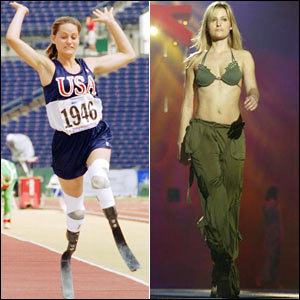Notes Toward Day 22: Serious(?) Games
Course Keeping:
Readings (and extensions?) for Wednesday
Plans for next week: Anne and Laura on Monday, Diana and Lisa on Wednesday
Plans for the week after: how best to present your multi-media projects?
Summary of Wednesday. Here are my very scattered notes. What I found interesting about many of the comments people made about their experiences in second life was that they did have an otherworldly quality to them–being lost in the mall, creepy, spaces were empty. There’s a sense that most of you do not feel at home in these spaces. When we talked about the relationship between our embodied selves and our online selves, we seemed to have difficulty making any determinations about what the self really is. We had this sense that there wasn’t really a complete self that anyone had access to, which led us, I think, to see our online personas as being simply a small part of ourselves.
Another issue that came up again and again was the way in which laws meant for the physical world did not work well for the virtual. Even though our virtual selves are in some sense “real” and part of ourselves, laws don’t tend to draw the boundaries very well. The same was true for our personal morals–people who see virtual sex as cheating are drawing a different line than those who don’t. Perhaps this raises the issue of not having any definitive set of social rules or morals that apply to everyone.
Gaming/Sharing our Experiences:
What’s the difference between gaming and virtual worlds? Where do they overlap?
In real life, I have a lot of inhibitions based on my appearance, my tendency to learn to trust people rather slowly, etc. Participating in these online worlds is one way for me to act out pieces of myself that I cannot necessarily express in the offline world without feeling too exposed or too far outside of my comfort zone. . . . I suppose I do feel very limited by my body at times, and the internet eliminates, or at least severely diminishes, that boundary.
In what ways are the games gendered? In what ways are they not? What gender do you feel like when you are playing?
Maybe this is because it’s kid-friendly? Sometimes games for younger players like this are more accessible to both genders (another game I used to play, Spyro the Dragon, was not especially male or female-oriented, either), but then again some other games for kids are very much marketed towards one gender and not the other: princesses vs. trucks, for example. I think an interesting angle from which we could look at these games is, for which gender are they intended? How does marketing create gender roles? —Hannah
Kalyn posted an interesting video that moves from a disturbing scene of violence to a sense of play. It raises the many emotions I think people feel toward video games: disgust or discomfort at the violence, but also the fun.
There’s an interesting sense of community that Hillary mentions. She says “I figured if I had to play a game I would want to be with friends,” and talks about how being with her friends in the real world made playing more fun.
“Looking for Gender”
Pulling out some interesting findings:
Both men and women underreport time played, but women underreport more. The authors suspect this is because game playing goes against gender norms for women. To support this idea, they show that bissexual women come closer to reporting their actual time played, the idea being that bissexual women “identify less with standard gender expectations.” This leads the researchers to suggest that a more fluid concept of gender should be taken into consideration in these studies, that one might look at how people identify themselves along a spectrum.
The suggestion that women who play with partners take on more traditional gender roles within their relationship was interesting. They suggest that the sexist content in the game studied as well as many others, “may be comfortable to individuals who value or simply expect more traditional relationships between romantic partners, or they may actively induce stereotyping.” The researchers wonder how the settings of games reinforce or challenge traditional views about gender. What are our thoughts?

Trackbacks and Pingbacks
Comments are closed.